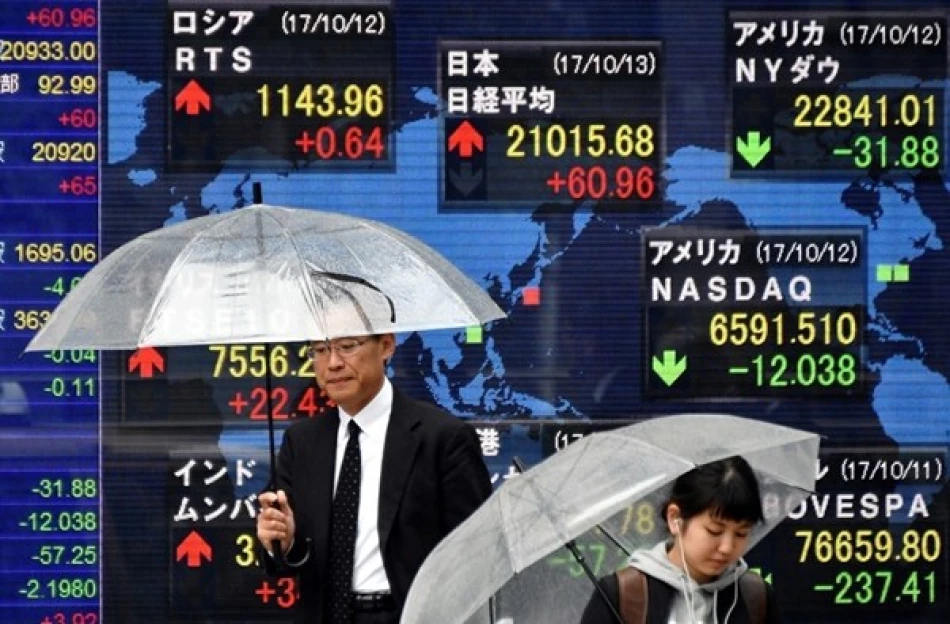
Japanese Nikkei Index Hits Record High, Surging Ahead in Asian Markets
Japan's Nikkei Hits Fresh Record High Despite Yen Headwinds as Tech Stocks Drive Rally
Japan's benchmark Nikkei index reached a new all-time high on Thursday, powered by surging technology stocks, though gains remained modest as a strengthening yen weighed on export-heavy companies. The mixed performance highlights the delicate balance facing Japanese markets between domestic tech momentum and currency-driven export pressures.
Market Performance and Key Movers
The Nikkei 225 climbed 0.3% to close at 44,938.40 points during early trading, briefly touching 45,055.99 to surpass the previous record set earlier this week. However, the broader Topix index declined 0.1%, suggesting selective strength rather than broad-based market enthusiasm.
Resonac Holdings emerged as the day's standout performer with an impressive 8.7% surge, followed by Screen Holdings, which gained 4.8%. These technology-focused companies benefited from continued investor appetite for Japan's semiconductor and materials sectors.
On the downside, utility stocks bore the brunt of selling pressure. Tokyo Electric Power Company dropped 4.4%, while Tokyo Gas fell 4.1%, reflecting sector-specific concerns that overshadowed the broader market's positive momentum.
Yen Strength Creates Export Headwinds
The modest gains despite reaching record highs underscore the growing influence of currency movements on Japanese equities. A stronger yen typically hurts Japan's export-dependent manufacturers by making their products more expensive overseas and reducing the value of foreign earnings when converted back to yen.
This dynamic creates a complex environment for investors. While a stronger currency can signal economic confidence, it simultaneously pressures the very companies that have driven much of Japan's recent market outperformance, including automotive and industrial giants.
Tech Sector Leadership Continues
The strong performance of Resonac Holdings and Screen Holdings reflects Japan's strategic positioning in the global semiconductor supply chain. Both companies play crucial roles in chip manufacturing equipment and materials, sectors that have attracted significant investor attention amid ongoing global digitalization trends.
This tech-driven rally mirrors patterns seen in other major markets, where semiconductor and technology companies have commanded premium valuations due to their exposure to artificial intelligence, data centers, and advanced manufacturing processes.
Market Implications and Outlook
The Nikkei's ability to reach new highs while facing currency headwinds demonstrates the underlying strength of Japan's equity markets. However, the narrow nature of the gains—evidenced by the Topix's decline—suggests investors are becoming increasingly selective.
For international investors, Japan's market presents both opportunity and complexity. The technology sector's strength offers exposure to global growth themes, while traditional export sectors face ongoing currency-related volatility. This environment favors active stock selection over broad market exposure, as sector and individual company dynamics increasingly diverge.
The utility sector's weakness, particularly in Tokyo Electric Power and Tokyo Gas, may reflect broader concerns about regulatory pressures or shifting energy policies, adding another layer of sector-specific risk that investors must navigate in Japan's evolving market landscape.
Most Viewed News

 Layla Al Mansoori
Layla Al Mansoori






